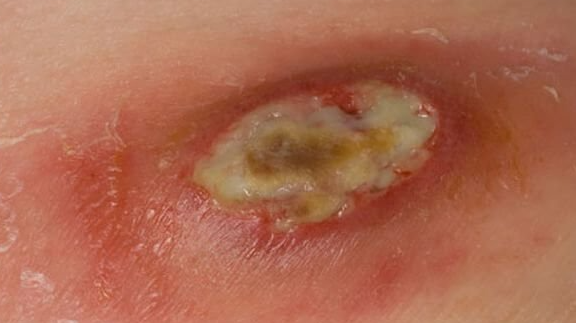In our daily lives, we will inevitably encounter some bumps and bruises, which will cause wounds of varying depths and sizes to the body. If there is no timely and effective treatment, the wound may become suppurative, inflamed, or even ulcerated, making the patient miserable. So what should you do if the wound ulcers? Follow me and take a look.
First, let's understand the difference between wound ulcers and wound ulcers.
Wound ulceration mostly refers to localized superficial defects of the epidermis or mucosal epithelium. Mainly due to bacterial infection, there are also symptoms caused by improper diet. Ulcers are ulcers and defects in the surface tissue of the skin or mucous membranes, which are more severe.
How to care for minor ulcers?
If the wound on the skin is lightly ulcerated and there is an inflammatory reaction in the wound, use saline to flush the wound, then apply a disinfectant such as iodophor for sterilization, and then use Silicone Foam Dressing to stick to the wound. It will absorb the liquid. , the surface layer of the dressing has a porous structure, low surface tension, does not adhere to the wound surface, has good air permeability, is elastic, soft, has strong plasticity, is light in weight, and has stable physical and chemical properties. Gas exchange is beneficial to wound healing, will not cause pain to the patient when changing dressings, and is simple and convenient to operate.
How to care for serious ulcers?
When skin ulcers are severe, large areas of tissue necrosis will occur. Surgical debridement is required to remove necrotic tissue and exudate from the wound. This is the basis for controlling skin ulcers. If the ulcer is severe, the necrotic tissue needs to be removed as well. After cleaning, change the dressing on the wound every day. If the tissue defect is serious, it can be combined with the closing prescription and dressing change to reduce the possibility of scarring. During the treatment period, some antibiotics with anti-inflammatory and anti-infective effects need to be taken orally or intravenously under the guidance of a doctor to control wound inflammation.
If the patient's wound is ulcerated, some of the secretions from the affected area can also be taken for bacterial culture and drug sensitivity testing, and then based on the results, appropriate antibiotics can be selected for anti-infective treatment. This can further enhance the anti-infective treatment effect and can Effectively shorten the duration of the disease. If the wound is ulcerated and the patient feels particularly painful, he or she can also take painkillers or intravenous injections to relieve the pain under the guidance of a doctor.
Patients with ulcerated wounds should also pay attention to protecting the wound in daily life, pay attention to wound hygiene, and avoid touching water. The diet should be mainly light, and spicy, irritating and irritating foods should not be eaten. If ulceration occurs, you must go to a regular hospital in time and take medicine under the guidance of a doctor. You must not take medicine blindly by yourself to avoid delaying the condition and further aggravating the condition.
For more information customized on the In nomed®Silicone Foam Dressing, Refer to the Previous Articles. If you have needs, you are welcome to contact us; You Wholeheartedly. At longterm medical, we transform this data by Innovating and Developing Products that Make Life easier for those who need loving care.
Editor: kiki Jia
Date: September 28, 2023

 English
English عربى
عربى Español
Español русский
русский 中文简体
中文简体








